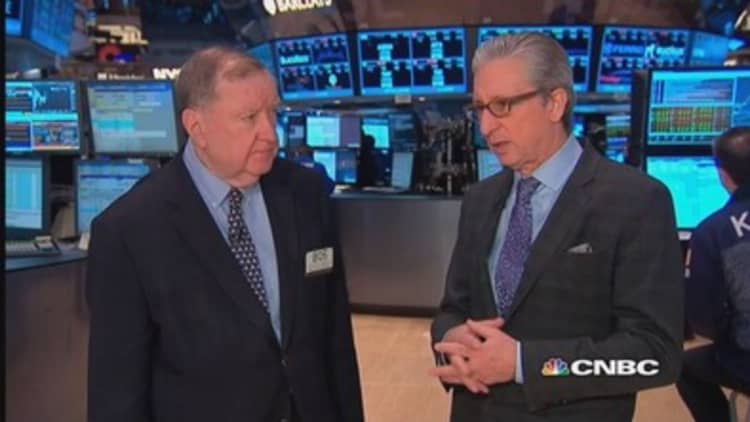
Societe Generale's notoriously bearish strategist, Albert Edwards, has poured scorn on the belief that the U.S. economy is recovering and predicts "violent" reactions in asset markets during the second half of 2015.
"The downturn in U.S. profits is accelerating and it is not just an energy or U.S. dollar phenomenon – a broad swathe of U.S. economic data has disappointed in February," he said in a research note published Thursday.
U.S. indexes have continued to hit all-time highs this year and the Nasdaq is also looking to break through a level last seen at the peak of the tech bubble in 2000.
However, Edwards said that, rather than concentrating on these corporate earnings or dismal economic data points, market participants were too focused on the "pillow talk" about decent payroll data from the U.S. Federal Reserve.
Fed Chair Janet Yellen sounded a dovish tone this week in front of Congress, saying the central bank would be patient with its goal of normalizing benchmark interest rates. Analysts have been busy dialing back their estimates for the next rate hike in the U.S., with many now believing that it could be September, or even later - rather than June – when a change in policy takes place.
"The reality is that the vast bulk of economic, as well as earnings, data (even outside the energy sector), has been simply dreadful," Edwards said.
"The economic cycle will be brought down by asset bubbles bursting long before 'tight' policy has any effect. Lessons were learned from the global financial crisis, but not that one."
In the research note, he highlights a slew of data that has surprised on the downside so far in 2015, adding that it was the worst start-of-year since 2009. Examples he gave included retail sales, factory orders and personal spending.
There have also been a number of disappointing earnings, with Wall Street powerhouse Morgan Stanley seeing adjusted earnings fall short of estimates and retail giant Wal-Mart posting worse-than-expected revenue last week.
Edwards said that such an earnings slump was normally associated with an outright U.S. recession.
"With equity markets galore hitting record highs clearly I must be missing something big!" he said. "I've been here before though and know full well how this story ends and it doesn't involve me being detained in a mental health establishment (usually)."
While Edwards' bearish thoughts and predictions are widely-read by colleagues and rivals at fellow banks, they are not always accurate. In September 2012, he said the U.S. was in recession and warned of an "ultimate" death cross for the —where the 50-month moving average falls below the 200-month moving average.
Instead the S&P 500 continued to rally, and has gained around 50 percent since Edwards' pronouncement. Other analysts disagree that equities are on the verge of collapse as central banks are waiting in the wings to backstop any instability.
Analysts expect the S&P 500 to end 2015 at 2,185 points, according to a mean average of ten analyst calls collated by CNBC. At the start of the year, the benchmark was 2,185 points.
This means a return of just over 6 percent for the year -- below the circa 11.5 percent gain seen in 2014.
Canadian investment bank, RBC Capital, was the most bullish, with Jonathan Golub, chief U.S. market strategist, projecting a 2015 year-end target of 2,325 points for the S&P 500. The U.S. index closed at 2,113.86 points on Wednesday.


